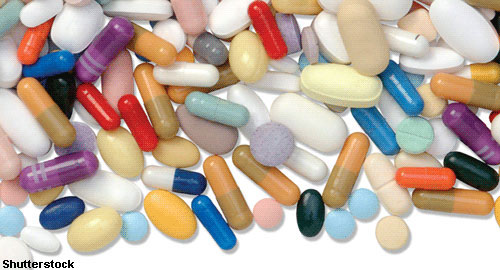 Patients with antiphospholipid syndrome (APS) also present with endothelial dysfunction, which can become thrombosis and early atheroma. Prior research has proposed the decreased dilation in APS patients may be the result of reduced nitric oxide bioavailability. The preservation of endothelial nitric oxide function requires, among other things, the bioavailability of tetrahydrobiopterin. Thus, tetrahydrobiopterin may be a key regulator of the balance between nitric oxide and reactive oxygen species.
Patients with antiphospholipid syndrome (APS) also present with endothelial dysfunction, which can become thrombosis and early atheroma. Prior research has proposed the decreased dilation in APS patients may be the result of reduced nitric oxide bioavailability. The preservation of endothelial nitric oxide function requires, among other things, the bioavailability of tetrahydrobiopterin. Thus, tetrahydrobiopterin may be a key regulator of the balance between nitric oxide and reactive oxygen species.
To receive a diagnosis of APS, patients must test serologically positive for at least one of the following on two occasions 12 weeks apart: anticardiolipin antibodies, anti-beta-2-GPI antibodies (aB2GPI) and/or lupus anticoagulant. Of these, B2GPI may be the most relevant target of the antiphospholipid antibodies.
Physicians prescribe hydroxychloroquine to treat systemic lupus erythematosus (SLE), and it has been shown to have anti-thrombotic effects in SLE patients. Although obvious reasons exist to believe hydroxychloroquine may be useful to treat APS, its use in APS patients remains controversial. Those who argue for its use note that among hydroxychloroquine’s many mechanisms of action is its ability to inhibit aB2GPI binding to phospholipid bilayers.
Geoffrey Urbanski, MD, a doctor of internal medicine at Universite d’Angers, France, and colleagues hypothesized that hydroxychloroquine may reduce endothelial dysfunction in an APS animal model. Although most APS animal models create experimental thrombosis via mechanical, laser-induced or photochemical vascular injury, Dr. Urbanski and colleagues induced APS by injecting mice with a single dose of monoclonal antibody to B2GPI. This injection created endothelial dysfunction in mouse resistance arteries for three weeks. The investigators treated these APS mice with hydroxychloroquine, finding that the treatment improved endothelium-dependent dilation at three weeks. The research, published Nov. 6 in PloS One, also indicated that hydroxychloroquine can improve nitric oxide synthase coupling and reduce oxidative stress.1
The investigators documented persistent impairment of both maximal vasodilation and sensitivity to acetylcholine for three weeks after the single injection of monoclonal aB2GPI as compared with untreated control mice. They also saw a reduction in both potency and sensitivity to acetylcholine in mice treated with the antibody. Because APS is more common in women than men, the researchers were surprised to find no differences in acetylcholine-mediated dilation between male and female mice. They also found responses to the endothelium independent dilator sodium nitroprusside (SNP) were not negatively affected by the antibody treatment. In fact, sensitivity to SNP was better in the antibody-treated mice than in the controls.
When the researchers treated the mice with hydroxychloroquine, they found the treatment improved acetylcholine-dependent dilation, but not maximal capacity. The restoration of dilation was large enough for the antibody-treated group to return to control levels. Additionally, the investigators found the addition of tetrahydrobiopterin and/or Tempol improved acetylcholine-mediated dilation in antibody-treated mice, but had no effect on the hydroxychloroquine-treated mice. This finding suggests that hydroxychloroquine likely reduces reactive oxygen species generation and, therefore, oxidative stress in the APS mouse model, an effect that is also seen when hydroxychloroquine is used to treat lupus.
